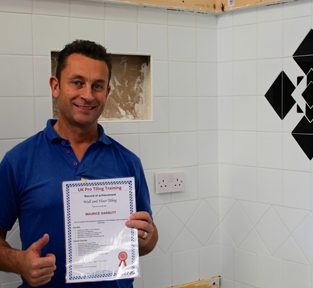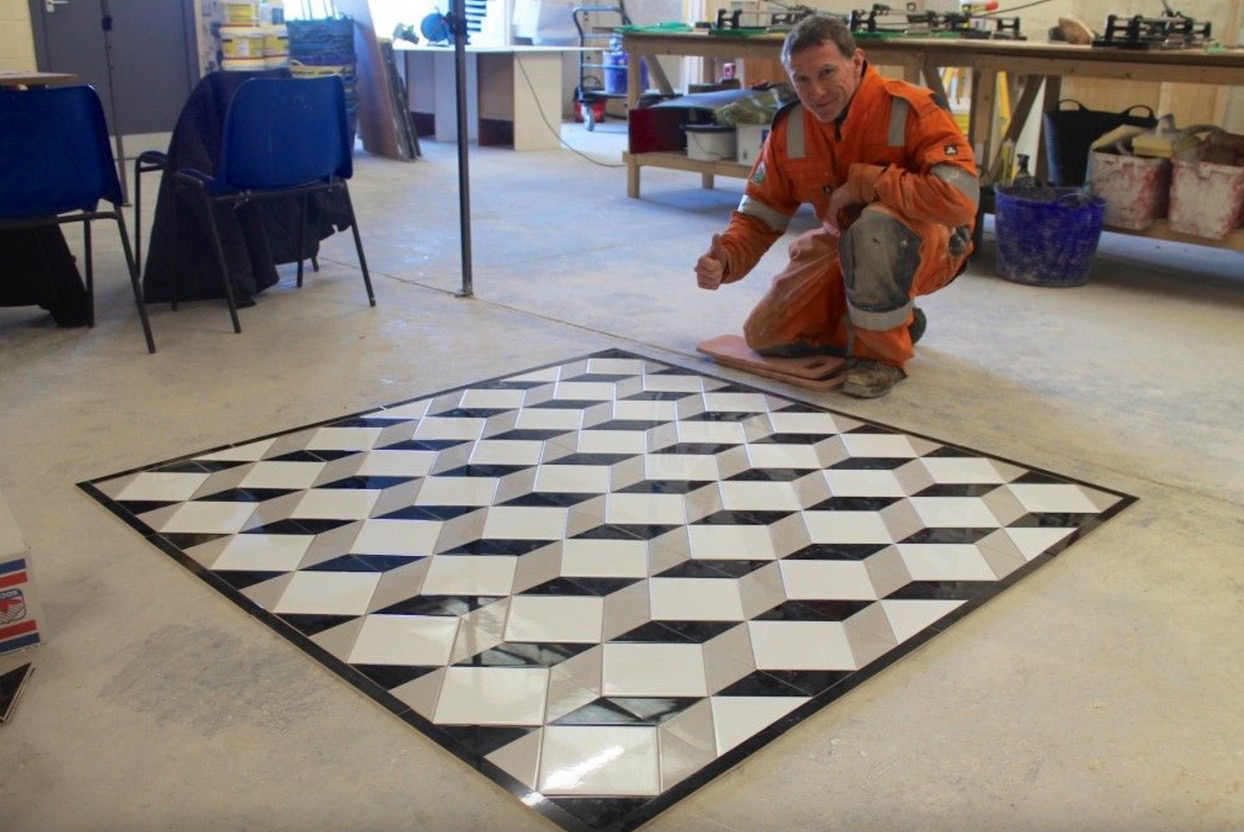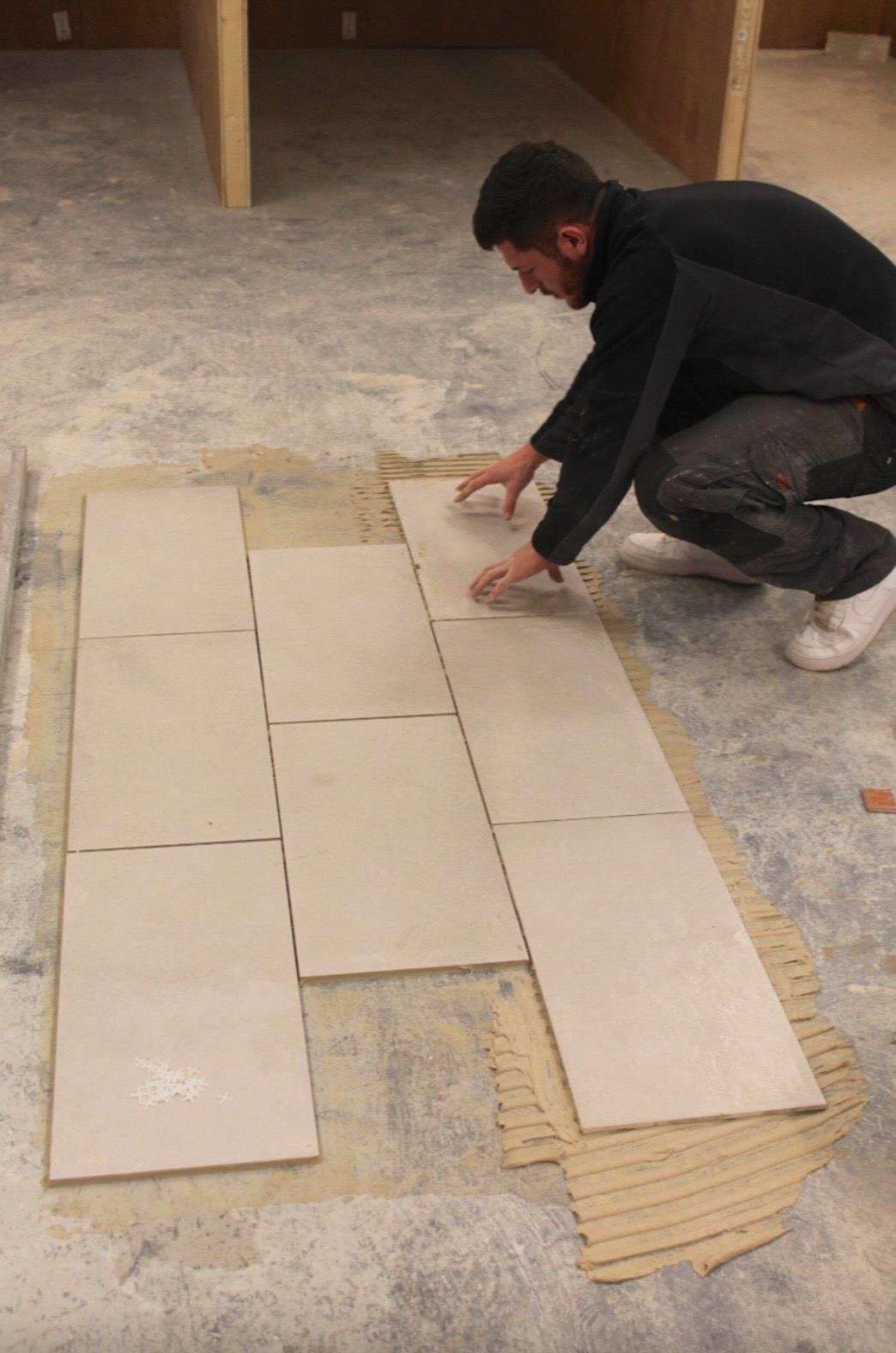Looking For Good Tiling Courses

There are many providers which will promise to deliver good training, but what do you really need to know when thinking of retraining as a wall and floor tiler.
Tiling courses come in a range of lengths from 1-week short fast track courses up to 2 years part-time at a local college, so which one do you pick?
Well, this can depend on your age or financial circumstances.
How old are you?
If you are young person and looking for an apprenticeship then the college route would be the best option alongside work experience with a wall and floor tiler, this route can take up to 4 years to complete, you will be a general labourer to the tiler doing all the labour work to start with, it will be a year or so before you will be allowed to try any tiling practices for yourself.
If you are older with a family or have financial commitments, then the college route might be too long and slow so you may be looking for fast track tiling courses that can get you up to speed quickly therefore once you have learned and practised the art of tiling, you will be able to start a business and trade straight away and start receiving an income from it.
College courses can be slow-paced but a good quality fast track tiling course can get you straight into physical practice and an understanding of what is required to do the job correctly.
When looking for a training provider it is important to also know if the provider will teach you about running a tiling business as well, having the tiling skills and leaving the training centre equipped with your new-found knowledge and new tools is no good if you don’t know how to start your business quickly and start earning. A good training centre will have an instructor that has been self-employed as a tiler before who can pass on his self-employed business experience as well.
The Training Centre
All training centres and colleges are artificial places so you have to make sure that the tiling training bays are as true to life as possible, the training centre should also offer theory sessions along with the practical side of tiling, most people want to get hands-on and stuck in with the practical fitting of tile which is fine but learning the different products and background preparations are essential for the correct installations reducing the chances of tile failure.
A keen eye is required from any person thinking of becoming a tiler as there is a fine line between a good looking installation and a bad one, millimetre precision is required for every tile joint, this will be taught on your course and is quite easy to acquire this attention to detail with the help of tile spacers.
The Skills Needed.
Once you have the practical tiling skills sorted, then you need to learn how to market and advertise your new
business, if you don’t find any customers then you won’t be tiling.
The sales skills are the next skill you need to acquire because once you have found your customers you need to sell them your service.
Interpersonal skills is another good one to have, befriending your potential customer usually results in you getting the job.
What a good training centre should offer.
Here is a list of what a good tiling training provider should cover on their tiling courses.
- Qualified NVQ level 3 tutors
- At least 2 years of history teaching tiling
- Lots of positive feedback and testimonials from past learners
- Tutors that have run their own tiling business
- Business advice
- Practical as well as theory sessions
- Proven training programs that work
- Course hand out notes detailing background preparations and product knowledge
- Aftercare service for ongoing support
- Good quality training facilities with up to date tools
- The use of new tiles, not tiles that are reused.
Talking to a provider
If these questions above are asked when talking to a potential training provider then you will get more understanding of what to expect on a course and you can then make your mind up if they are good or not. Good quality fast track tiling courses usually cost around £500 for a weeks intensive training which is why it is important to pick the correct provider. Many people have started a tiling business with as little as two weeks training and then went on to build a good solid profitable business.
One to look for and consider is UK Pro tiling training who are one of the longest-running tiling centres in the UK with good facilities and an excellent track record having trained thousands of past learners on their fast track tiling courses.



